
The legal system in the U.S. is deep and complex; navigating the procedure for someone unfamiliar with the law is virtually impossible. The United States also has the highest number of licensed lawyers (estimated at more than 1,300,000) per capita of any country. Yet, the Bureau of Labor Statistics (BLS) reports the career will still grow by 10% (faster than average for all occupations) between 2021-31.
There are just short of 200 law schools in the U.S. (the oldest dating to 1779), most offering 3-year, full-time law school programs accredited by the American Bar Association (ABA). Forbes (March 2022) published that average law school tuition is reported between $84,558 (public, in-state) and $147,936 (private schools), which doesn’t include living expenses. The BLS reported the median salary for attorneys in 2021 to be $127,990 per year. Lawyers are required to hold a Juris Doctor (JD) degree to practice, and most states require attorneys to pass the bar exam for the state in which they intend to practice.
If you intend to apply to law school, you’ll want to schedule the Law School Admission Test (LSAT) by December 1. Admission to law school is highly competitive, with schools requiring applicants to provide LSAT scores, and due to a recent ABA recommendation, some schools will accept GRE scores instead of LSAT scores for admission.
College Consensus wishes you luck in identifying the school that meets your goals.
How We Ranked the 50 Best Law Degree Programs for 2023
The College Consensus 50 Best Law Degree Programs for 2023 are ranked according to a consensus of rankings. Each school is ranked by an average of their scores from four sources:
- U.S. News & World Report
- Above the Law
- Shanghai Rankings
- Times Higher Education World University Rankings
Institutions had to be represented on at least three of these to qualify.
With these elements in mind, our team looks at college programs according to their record of providing a return on investment. Our ranking of the 50 Best Law Degree Programs shows the best combination of market reputation, educational quality, and rewarding income. All the programs in this ranking hold accreditation. We hope there is a program on this list that inspires you to take the next step.
The programs in this ranking are all accredited by the American Bar Association (ABA).
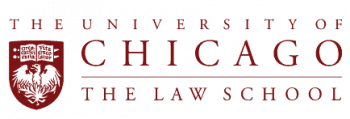
The Chicago University School of Law boasts an impressive roster of notable alumni, including former Senator Carol Mosley Braun, former FBI Director James Comey, Senator Amy Klobuchar, author Studs Terkel, and more. Former President Barack Obama was a faculty member before his election as U.S. Senator for Illinois. Ranking #3 in U.S. News and World Report’s Best Law Schools, this prestigious degree emphasizes an interdisciplinary approach to the law with featured academics in Legal History, Law and Philosophy, Law and Business, and its renowned focus on Law and Economics through the Coase-Sandor Institute for Law and Economics. The school awards the Juris Doctor program and joint graduate degrees (Master of Laws (LLM) with other degrees such as the M.B.A. program. The law school has an impressive 99% employment rate within ten months of graduation, guaranteed $5,000 for first and second-year students in summer fellowships in various Chicago agencies, and offers more than 76 full-tuition scholarships.

Located in the vibrant Research Triangle of Raleigh-Durham-Cary, North Carolina, Duke Law’s origins date to the 1850s, and today is one of the country’s finest law schools. With an ambitious academic commitment, Duke Law offers a challenging curriculum for JD students covering a wide range of specialty areas (environmental law, criminal law, health care law, etc.) and has a solid 97% bar exam passing rate. Duke Law admission is highly selective, with only 20.2% admitted of those who applied and one of the country’s highest median salaries among graduates working in the private sector. You’ll want to explore the dual degree offered in the JD/LLM in Law and Entrepreneurship, JD/LLM in International and Comparative Law, or the JD/MA in Bioethics and Science Policy; or, you can combine your JD with graduate degrees in environmental management, medicine, divinity, and others. The school is dedicated to diversity with organizations such as its Anti-Racism Project, Black Law Students Association, Women Law Students Association, etc.
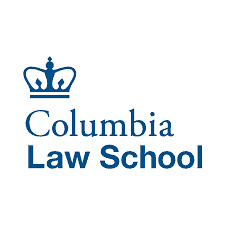
An Ivy League school and one of the oldest in the nation, Columbia University School of Law is located in New York City. It offers a wealth of opportunities both educationally and professionally. With 14 specialty areas taught, this curriculum offers dual and joint degrees with an innovative approach and a world-class faculty. The school is the alma mater for more notable alums than we’ll cover. Still, they include two U.S. Presidents and some of the country’s most renowned jurists, including Supreme Court Justices Ruth Bader Ginsberg, William O. Douglas, and John Jay. Columbia Law has a 4.9:1 student-faculty ratio, a highly published faculty, and active legal research centers. With a 16.8% acceptance rate, not everyone can make it into Columbia Law, but graduates average 97% first-time bar exam pass rates. Successful employment rates for graduates are in the 90 percentile with high median salaries as law firm associates.
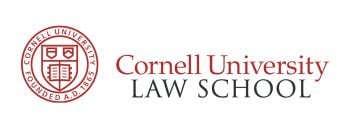
One of the first things you see on the Cornell Law School website is the announcement that the school is #1 in job placement in large law firms. Located in Ithaca, NY, Cornell (another Ivy League school) prides itself on offering a small law school community. You’ll find six featured study areas in legal topics in human rights law, criminal as well as civil law, corporate law and financial regulation, and others. Approximately 21.1% of the more than 4,000 applicants are accepted to the program, and graduates have a 95% bar exam pass rate. With an exceptional faculty and wide-ranging curriculum, Cornell Law students benefit from visiting international legal scholars and professors that offers great diversity. When you need to retreat from studies for a while, Ithaca, NY, is in the heart of the Finger Lakes region of NY and its lakes, parks, waterfalls, and thriving cultural opportunities.

With a historical pedigree, Yale Law School is one of the Ivy League’s finest law schools in the country. Starting in 1810, Yale Law School has graduated two U.S. Presidents, an impressive roster of Senators, 10 Supreme Court Justices, four foreign Presidents, Prime Ministers, authors, journalists, and the list goes on. Highly selective, Yale Law accepted less than 7% of the 4,200 applicants in 2022, with 236 admission offers. A little more than half of Yale Law students are women and students of color. Nearly 76% of students receive some financial assistance; in 2022, introduced Tuition-Free Scholarships for the students with the highest financial need. This school is located in New Haven, CT, with world-renowned faculty engaged in teaching and Yale Law School’s centers and clinical offerings. The school doesn’t use a traditional grading system but a Pass/Fail and the first-time bar exam pass rate for graduates is a remarkable 99%.
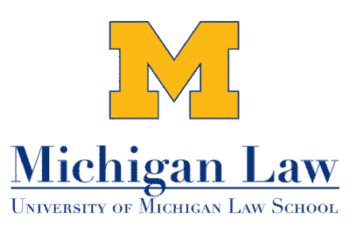
Michigan Law in Ann Arbor, MI, is one of the country’s oldest and largest law schools (est. 1859) and the first to admit women. With over 1,000 students, the school still admits less than 20% of its applicants and has 151 faculty members (women and people of color represent approximately 49% overall.) You’ll have the advantage of the 19 Michigan Law’s storied clinics that will give your real-time experience in advocacy, child welfare, community, environment and sustainability, human trafficking, and more. Besides the domestic clinics, there’s a cross-border component with International Transactions Clinic, acquainting you with international-deal law. In addition to your classroom studies, these clinics provide you with marketable experience, demonstrated by the school’s impressive 98% graduate employment rate in private firms, clerkships, government, public interest, etc. As time allows, you’ll want to take advantage of available student activities with Moot Court Competitions, one of six law journals, and available law student associations.
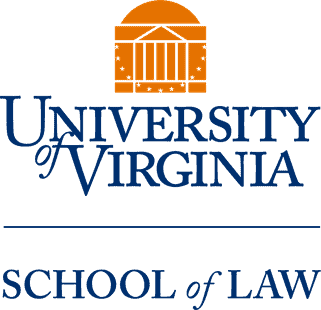
No less than Thomas Jefferson founded the University of Virginia School of Law in 1819, and today, the Charlottesville, VA, school is the second-oldest continuously operating law school in the nation, with Harvard coming in first. Consistently ranked in the top 10 law schools in the U.S., UV Law is recognized in the top 5 schools by The Princeton Review for Best Faculty, Best for Federal Clerkships, and Best Career Prospects. UV Law awards J.D., LL.M., S.J.D., and dual J.D. degrees in several disciplines in M.P.H, M.D., M.B.A., and more. Graduates in 2021 had a 94.8% first-time bar exam pass rate. The school has an active career services department with dedicated career counselors who capably prepare you for careers in private practice, judicial clerkships, public service, etc. UV Law graduates can be found in leadership positions in 100 top firms and top 500 companies. You’ll also have access to the impressive UV Law Network.
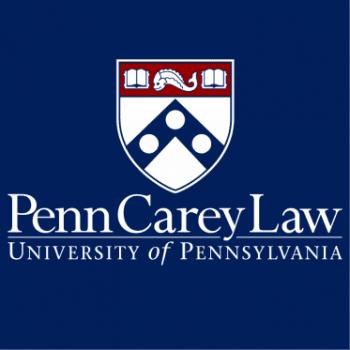
PennCareyLaw at the University of Pennsylvania (est. 1850) is a highly selective school, but with good reason. Only 14% of the 6,146 applicants were offered admission. With a 98% first-time bar exam pass rate and a 97% employment rate within ten months of graduation, this school ranks in the top 10 of graduates earning over $180,000 with private law firms. This Ivy League law school takes a holistic approach to the study of law and focuses on an interdisciplinary curriculum. With joint degrees offered with the law school’s sister colleges, over 77% of PennCareyLaw’s students enroll in one of the 35 dual degrees. A sampling of the dual degrees can combine your law degree with the MBA program at Wharton School of Business or earn a JD/MBE in Bioethics with the Department of Medical Ethics Perelman School of Medicine and others. With an eye to diversity, 50% of the class of 2023 identify as women, 43% as a person of color, 17% as LGBTQ+, and nearly 30% are the first generation.
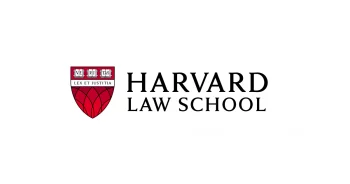
Since its opening in 1817, Harvard Law School has continuously graduated some of the country’s most distinguished students, with two Presidents, one First Lady, 16 Supreme Court Justices (four currently), and several U.S. Attorneys General on its alumni list. To say Harvard Law School is prestigious is an understatement.
Located in Cambridge, MA, across the river from Boston, over 9,000 students apply each year for admission, with only 928 interviewed and 685 being offered admission. The Harvard Law School faculty is among the most distinguished in the country. Harvard Law’s curriculum also provides specialized dual JD programs in government, business, public health, and others, in addition to a 3.5-year Cambridge LL.M. and Harvard J.D. Since 1887, the student-edited Harvard Law Review has set the standard for legal journals. It has boosted the law careers of notable such as former President Barack Obama, Supreme Court Justices Elena Kagan, Ruth Bader Ginsberg, Ketanji Brown Jackson, and several more.

Neighboring the beautiful San Francisco Bay, the University of California Berkeley Law matches the vibrancy of the area as one of the more notable law schools in the nation.
As a liberal area of the country, Berkley Law offers the most diverse student body, with over 63% female, 54% people of color, and 32% LGBTQ+. Competition for admission is challenging, with over 6,800 applicants, with 279 admitted for the Class of 2025. Fourteen experiential learning clinics will provide real-world applications in various areas, including International Human Rights Law, Domestic Law Practicum, Death Penalty Clinic, etc. Berkely Law encourages collegiality over competition with a non-lettering grading system. You can also participate in pro bono community services. More than a third of graduates accept clerkships, private practice, and government positions.

The oldest law school in New York City (est. 1835), NYU Law, is located in the historic Greenwich Village surrounding Washington Square Park. With more than 100 faculty members, 16 areas of legal studies, 80 student organizations, and more than 30 centers, this is a highly regarded law school in the U.S.
NYU Law offers an impressive curriculum in law and business with an interdisciplinary focus on economics, politics, theory, and tax and international law. The school maintains a global reputation in international law education through its Hauser Global Law School Program and the Guarini Institute for Global Legal Studies and study abroad programs in Paris and Buenos Aires. NYU Law graduates have a 97.5% bar exam pass rate, and graduates earn a median of $215,000 in law firm salaries. Admission is highly selective, with strength in diversity enrollment, with 45% people of color and 57% women. NYU Law offers several scholarships and a highly successful Loan Repayment Assistance Program.

For over 145 years, Vanderbilt University School of Law in Nashville, TN, has earned a reputation for excellence. Located in the center of Tennessee’s capitol, you’ll also be in the middle of Music City and some of the best country music venues in the country.
Offering ten academic centers and programs, you’ll learn from a top-tier faculty and have the option of earning a dual degree in finance, business, medicine, or divinity or customizing a dual degree. Vanderbilt is a relatively small school and highly competitive. For the 2023 class, 5,181 applied, 182 were admitted and committed to diversity, with 62% women and 22% minorities enrolled. Academic programs at Vanderbilt include studies in international law, social justice, law and government, intellectual property, and dual degrees. The school not only has a 95% bar exam pass rate but excellent career services, with graduates earning federal and state judicial clerkships and positions in private law firms.

In 1893, Stanford Law began its law curriculum with a series of lectures by law professor and former President Benjamin Harrison. It is committed to a customizable student-centric law program to meet your specific goals. The Stanford campus is in the picturesque San Francisco Bay Area in Palo Alto, CA.
Stanford Law is competitive. The class of 2021 saw 5,000 applicants, with 6% accepted as high-performing scholars. As competitive as the school may be, it’s also one of the most flexible programs we’ve seen. You can design your own dual degree or develop a new course; the options are unlimited. Stanford Law offers 11 immersive legal clinics, including Community Law, Environmental Law, Immigrants’ Rights, Supreme Court Litigation, Criminal Defense, and more. The school offers more than 15 law and policy practicums and has 21 dual degree options and cooperative degree programs with John Hopkins and Princeton. Stanford graduates do well on the bar exam, with 97% passing on the first attempt.

Opening shortly after World War II, UCLA Law is one of the more diverse and selective schools we’ve reviewed, with more than 58% of students identifying as women and people of color. This is a selective school, with only 15% of its over 5,000 applicants being accepted.
The curriculum at UCLA Law is inclusive, offering among its studies Critical Race Studies, Human Rights, Immigration Law, Entertainment Law, Law, and Sexuality, as well as Indian Law. Several centers, projects, and institutes are dedicated to legal issues ranging from trial advocacy, climate, environment, entertainment, etc. They will allow you to explore legal specialties under faculty and expert supervision. One of the more recognizable institutes is the Williams Institute devoted to addressing the legal bias against the LGBTQ+ community. In 2021, the school received a $4 million chair endowment in Native American Law and Policy intended to recruit faculty and advance the legal study of Native American Law.

Considered the premier law school in Texas, this School of Law enjoys the reputation of being one of the country’s most affordable. When time allows, you’ll be able to enjoy the cultural and entertainment opportunities in Austin and Texas’ magnificent Hill Country.
From a pool of approximately 5,000 students, the school accepts around 300 each year of students—average LSAT scores for admitted students run around 170 with a 3.84 median GPA. Diversity representation is strong, with typically underrepresented groups on the rise. The experiential clinics offered in domestic violence, immigration, civil rights, environmental, and others will give you the opportunity to work closely with faculty and clients. Ninety-three percent of these law school graduates pass the bar exam on the first try and earn an average of $140,000, thanks, in part, to the excellent Career Services Department. Each career counselor is a licensed attorney with connections to private firms, judicial clerkships and internships, government agencies, and more.
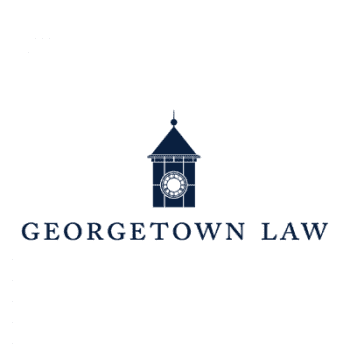
There may not be a more appropriate location in the U.S. for a law school than Washington D.C., and since 1870, Georgetown Law has been near the Supreme Court and in proximity to the U. S. Capitol.
The competition to enter Georgetown Law is steep, with more than 14,000 students applying and only 12.9% or 1,800 accepted, helping make this one of the country’s largest law schools. Each term, the school conducts the Supreme Court Moots through its Supreme Court Institute, and over 300 students participate in 19 separate clinics. Areas of legal study are broad and cover more than 500 courses from business to technology and everything in between. Graduates have a 92.6% bar exam pass rate, and the employment rate is slightly above 83%, with median salaries of $190,000 in private firms. An active alumni community of over 46,000 provides a strong network you can tap into throughout your career.
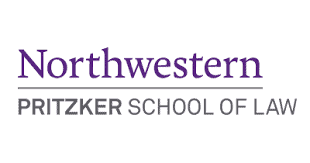
To say a law degree from Northwestern Pritzker School of Law is respected is an understatement.
Eighty-five percent of Pritzker School of Law applicants have one or more years of work experience, which is a considerable component of the admission process. Over 7,000 apply annually to this program, and approximately 20% are admitted. Located near the shores of Lake Michigan, this school’s bar exam pass rate exceeds 90%, as does its employment rate for its graduates ten months after graduation. On graduation, you’ll join more than 18,000 lawyers in the school’s global network, spanning 90 countries. This curriculum offers seven concentrations, and under faculty guidance, you’ll gain valuable practice experience through one of the nationally recognized 20 clinics operating in 12 centers of the Bluhm Legal Clinic. Pritzker School of Law boasts the most interdisciplinary Ph.D. faculty in the nation and the third lowest student-teacher ratio.

There are two standout law schools in Boston, one is Harvard, and the other is Boston University School of Law which has had a strong foundation of excellence dating to 1872. BU School of Law holds the distinction of being one of the first law schools to admit women and minorities in 1882. Today, more than half of enrolled students identify as female, and 32% are students of color.
In the heart of Boston, this school is selective in admission, with only 12% of applicants being accepted. Students have more than 200 courses to choose from, taught by expert faculty on a long roster of legal issues, such as Civil Rights, Housing, Constitutional Law, and others. The Health Law and Intellectual Property programs are well respected and nationally recognized. The first-time bar exam pass rate for BU graduates is 94%, and 64.5% are employed at graduation, with 78.8% within ten months of receiving their diploma.

The statistics for the School of Law at the University of Georgia are impressive. Named by national publications, this school is notable for its return on investment, 38 judicial clerkships, a 450% increase in summer fellowships, and a top 10 Moot Court Ranking. Situated in the quaint town of Athens, voted the South’s best college town by Southern Living, you’ll enjoy a low cost of living, cultural activities, and 80 minutes from Atlanta.
With a faculty that includes Fulbright Scholars, American Law Institute Young Scholars Medal recipients, five former Supreme Court judicial clerks, etc., you’ll have ten faculty-led clinics and seven externships available. Clinics give you exposure to skills in veterans’ legal issues, mediation, family justice, and more. Externships provide real-life legal services to Georgia residents, including practice semesters in Atlanta and D.C. The school offers ten dual-degree programs and a strong mentorship program, linking students with faculty and legal professionals available for advice and a career advisor. The bar exam pass rate is near 94% boasting a 92.6% employment rate.

This law school opened in 1845 and is the oldest law school in North Carolina. Those 175+ years have seen the UNC-CH School of Law grow to consistently rank in the country’s top 25 best law schools.
The school received 2,866 for the 2025 class and admitted 209, the majority of whom are North Carolina residents. The world-class faculty leads you through over 100 externships, ten legal centers and programs, and ten dual degrees. Approximately 40% of practicing North Carolina attorneys are Carolina Law graduates, with the majority in private practice and more than 50% of students and 45% of the faculty identifying as women. Over 60% of graduates are employed at graduation, mostly in private firms, with women reporting a mean salary of $102,964 and men $98,406.
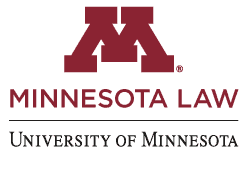
The University of Minnesota in Minneapolis was established (1857), a year before the Minnesota territory became a state, with the law school opening in 1888. Located near the state capitol, Minnesota Law students are part of the larger legal community.
This law school has a sterling national reputation, with 72% of the students coming from outside of Minnesota. Both Supreme Courts Associate Justices Bader Ginsberg and Sotomayor have visited the school and informally talked with students. Approximately a quarter of the class of 233 are people of color, and another 26% identify as LGBTQ+. The school has an exceptional 93% employment rate with students and 96% first-time bar exam success. You’ll receive personal attention with the school’s 8:1 student-faculty ratio and benefit from the high percentage of faculty members who have won teaching awards. The school has over 35 student organizations, including the Fighting Mondales Hockey Club and the somewhat quirky Theatre of the Relatively Talentless law student productions.
Located in South Bend, Indiana, the Notre Dame Law School holds the distinction of being the oldest Catholic law school in the U.S.
The entering class of 2025 is already a record-setter, with 36% of people of color, making it the most diverse class in the law school’s storied 153-year history. This class also sets a record with the highest GPA and LSAT scores. Classes are small, with a 7:1 ratio, and are taught by exceptional professors, including 14 who were judicial clerks for the Supreme Court or have years of professional legal experience. The Chicago satellite campus offers 2L and 3L students opportunities to live in Chicago for an externship working with Notre Dame Law School faculty. With an exceptional 82% employment average of graduates working in law firms with a typical salary of around $160,000.
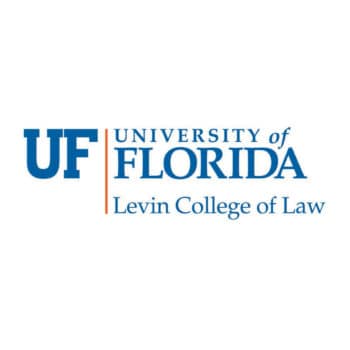
Sitting on the University of Florida’s Gainesville, Florida campus, the Frederic G. Levin College of Law is consistently rated in the top 25 law programs in the country.
This is the oldest operating law school in the state of Florida; named for a famed Florida trial lawyer, the school is the alma mater of several U.S. Senators and Representatives. Usually called UF Law, the school is highly selective at 16.9%, with only 196 out of over 4,000 applicants. The latest figures show students have a median 3.7 GPA and 163 LSAT scores, with nearly 50% of the student body comprised women. UF Law has a very active Semester in Practice externship with 50 students working in New York, Denver, Honolulu, D.C., and others. Students can study race relations, children and families, race and crime, and government responsibility in the school’s on-campus centers.
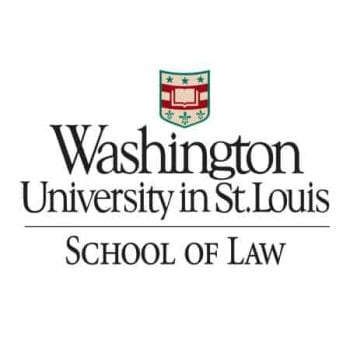
This private law school in St. Louis, Missouri, has been training attorneys since shortly after the Civil War in 1867; the School of Law (affectionately known as WashULaw) has a global scope with a midwestern appeal.
Not only does WashULaw have 17 study abroad and semester exchange programs, alumni working in 24 countries, and 66% of graduates working in private practice, government, and judicial clerkships. The curriculum and training of this school are widely known for its trial advocacy, clinical training programs, and dispute resolution. About 48% of the study body comprises women, and nearly that percentage is female professors. WashULaw admitted 260 students from an applicant pool of over 5,000, with 59% of them women. When you’re not studying, you can enjoy what the “Gateway to the West” city of St. Louis offers, from Cardinals baseball to the Gateway Arch, and cultural and dining experiences.
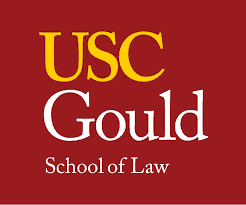
Considered an elite law school with a nationally recognized faculty, interdisciplinary studies, and a low professor-to-student ratio, Los Angeles’ University of Southern California’s Gould School of Law, is Southern California’s oldest law school. Known for its diversity commitment, USC attracts many underrepresented students. Gould Law has one of the country’s most diverse law student bodies, enrolling the most international students. The USC Gould School of Law established one of the country’s earliest arbitration and mediation programs, one of the first legal clinics for the public, and, with the school’s LA location in the country’s entertainment capital, has an unmatched concentration in entertainment law.
As time allows, you’ll find all manner of activities to help you unwind, including USC Trojan football, theatre, concerts, and more. Gould Law has over 30 political, cultural, social, and other organizations.

The Emory Law is on the beautiful Emory University campus, just minutes from Atlanta, Georgia. Emory Law’s long-standing reputation is known for its excellence in Health Law, Corporate and Transactional Law, and Constitutional Law; the school has been recognized by National Law Journal as a “Go To” school.
Over a century old, Emory Law claims the title of the “Harvard of the South” (although Vanderbilt does as well). It offers its students training and experiences not usually provided in law school. With its nationally celebrated clinics, externships, study abroad, and special civil rights and social justice studies, this is a popular program. Emory Law has a consistently high application pool, with over 5,000 applying for the 2025 class and 1,435 accepted. Bar exam pass rates hit 92%, and nearly 65% of graduates directly enter the legal profession with an average $166,000 salary.
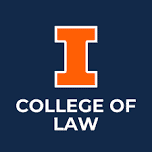
Recognized for its cutting-edge curriculum, interdisciplinary legal programs, and renowned faculty, among other program options, the University of Illinois College of Law is one of the oldest law colleges in the nation (est. 1897).
Not only does the college have a reasonable tuition rate, but the school guarantees your tuition won’t increase during your three years of study. With a commitment to diversity and inclusion, UI College of Law ranks #1 in enrolling students of color in the midwest. Admission is selective, with 207 accepted out of nearly 2,000 applicants (29.4% on average.) UI College of Law has excellent public interest and criminal law programs. More than 66% of graduates remain in Illinois to practice in areas of business, government, and public interest. Students enjoy one-on-one alumni mentoring that can extend to lawyer-to-lawyer mentoring on graduation.
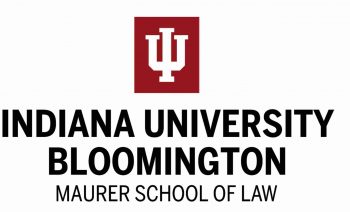
Known for its excellent law programs in Intellectual Property, Tax Law, Business, and Public Law, the University of Indiana Bloomingdale Mauer School of Law (the oldest law school in the midwest) consistently ranks in the top 30 of the nation’s law schools. The school counts a Supreme Court Justice and U.S. Senator in its alumni roster and holds the distinction of having one of only eight U.S. law schools to have a Latine woman serve as Dean.
The law school had a median LSAT score of 164 and a general acceptance rate of 36% for its 155-member 2022-23 class, comprised of 54% women and 32% minority students. The school has more than ten joint degrees, a distinguished faculty, respected research centers, and opportunities in pro bono, clinics, moot court, practica, and externship experiences. Ninety percent of law school graduates enter the profession within ten months of graduation and have a 90% bar exam pass rate. Bloomington is located in Southern Indiana and is a quaint college town of 85,000, with a low cost of living and recognized as one of the best college towns in America.
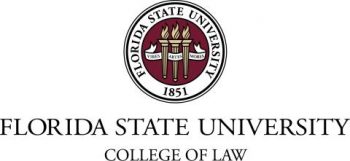
Located in the legal center of Florida’s state capitol in Tallahassee, Florida State University College of Law has been nationally recognized for its outstanding value, moot court program, and training for government careers. Student life at the school is considered one of the best in the country.
FSU College of Law has a top-notch faculty with practice experience and an exceptional curriculum for, among others, international law, business law, and environmental law. You’ll also be able to participate in clinical externship programs and supervised “real world” clinics, the most recent of which is the Business Law Clinic. Over 84% of FSU law graduates pass the bar on their first try, with the majority working in public service firms with a median salary of around $83,000. Women make up 56% of the total enrollment. Most graduates choose to remain in Florida to practice.
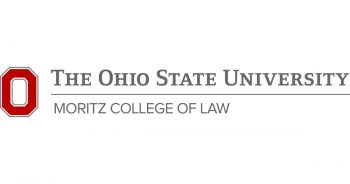
You’ll find U.S. Supreme Court Justices, senators, governors, and CEOs of Fortune 500 corporations, along with private law firms among Ohio State University’s Moritz College of Law graduates. The college is consistently located in the country’s top law college rankings.
The curriculum provides eight hands-on clinics, 50 student organizations, and a remarkable 100+ dual/joint degrees overseen by a world-class and award-winning faculty. Moritz College of Law admissions for the 2022 cycle admitted 179 students out of 614 applicants, and students had a median LSAT of 163 and a median 3.79 GPA. More than 92% of graduates pass the bar exam on their first attempt. The law school is located in Ohio’s capital city, Columbus, and over half of Mortiz graduates go directly to work in private law firms, earning a median salary of $95,000.
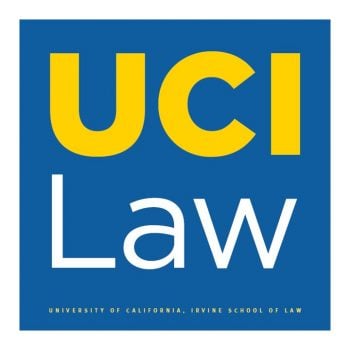
One of the newest law schools on our list (est. 2018), the University of California Irvine School of Law, is the most recent public law school to open in the state in the past 40 years.
In 2022, the school received more than 2800 applications, with 173 enrolled. The entering class is highly diverse, with more than 58% of them students of color and 53% identifying as female, and the median LSAT is 167 and 3.72 GPA. The law school boasts an innovative curriculum tapping into legal analysis and skills employed by practicing lawyers. You’ll complete at least one semester of clinical education in one of the school’s ten in-house clinics, focusing on professional legal skills in research, oral advocacy, and writing. Irvine, CA, is consistently recognized as one of the safest communities in the state. UCI sits in the middle of Orange County between San Diego and Los Angeles.
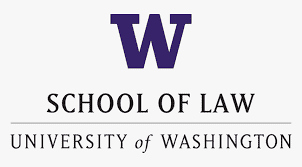
Near Seattle in the Pacific Northwest, the University of Washington School of Law is one of the country’s best law schools.
With a 25.6% acceptance rate of over 3,000 applicants, UW School of Law is selective, with 781 offers of admission for the 2022 academic cycle. The faculty is dedicated to legal research and initiatives. The school supports clinics and institutes in areas including the internationally known Asian Law Center, Global Business Law, and Native American Law Center. The law school’s commitment to diversity and inclusion is impressive with gender and racial diversity numbers. Entering students have a median LSAT of 164 and a GPA of 3.67. With a 91% bar exam rate, the majority (58.3%) of UW Law School graduates go directly to work in law firms with an average salary of $115,000. Approximately 23% enter judicial clerkships and public interest.

You won’t find a more appropriate location for a law school than the George Washington School of Law campus in Washington, D.C., one of the largest law schools in the country.
GW Law has an exceptional curriculum, one of the largest in the nation, with over 275 elective courses covering 18 specific areas. The school’s location to courts, government agencies, law firms, etc., allows it to offer over 500 field placements and 16 clinical programs to provide hands-on experience in various areas. Admission to this school is tough, with more than 27,000 applicants yearly. Approximately 80% of students receive financial assistance through need-based grants, merit scholarships, and loans. Graduates have a 93% first-time bar exam pass rate. JD grads earn a median salary of $190,000 in the private sector. Alums of GW Law include the first woman to argue before the Supreme Court (Belva Ann Bennett 1879), U.S. Attorney Generals, and FBI Directors.
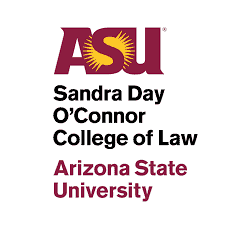
Named for the first woman appointed to the United States Supreme Court, Arizona State’s Sandra Day O’Connor College of Law nationally ranks as one of the best public law schools.
Located in Phoenix, this college is only one of two in the whole state of Arizona. This school is especially proud of its specialty programs in criminal law, health care law, environmental law, writing, and dispute resolution. This school has a solid and distinguished faculty who teach and oversee ASU’s legal centers and institutes. This law college established a specialized Indian Legal Program emphasizing tribal governments and Indian law over 30 years ago. From over 5500 applicants for the 2022 academic cycle, 1178 were offered admission in a JD class size of 289. More than half of the class identify as women and nonbinary, 35% are students of color, and 19% are members of the LGBTQ+ community.
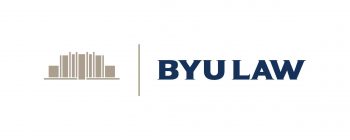
Affiliated with the Church of Jesus Christ of Latter-Day Saints (LDS), the J. Reuben Clark Law School of Brigham Young University is one of two law schools in Utah. Located in Provo, Utah, the third-largest city in Utah, and is approximately 45 miles from Salt Lake City.
Nationally recognized for its exceptional bar exam passage and employment rates, this college has an average 38.1% acceptance rate, below the national 45% average. Students have a median LSAT score of 167, a 3.8 GPA, and enjoy a low student: teacher ratio. Each semester students and faculty travel to Texas to represent women and children asylum seekers who are being detained and awaiting credible fear interviews. Although students of all faiths are welcome, tuition for LSD students is half the cost for non-LSD students. The College of Law offers fellowships and several scholarship opportunities, with 34% of BYU law students graduating debt-free in 2020.
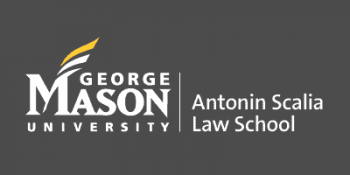
Established in 1979 through a merger of the International School of Law and George Mason University, the Antonin Scalia Law School at George Mason University is in Arlington, Virginia, only four miles from the nation’s capital. As the school’s name might imply, the curriculum at the Scalia Law School’s legal principles bends toward the conservative, much like the past Supreme Court Associate Justice. With seven centers and research programs, you’ll experience a 4:1 student-faculty ratio and be taught by a distinguished faculty. The school’s proximity to Washington, D.C., allows the school to attract faculty members from top law firms serving in the White House and other government agencies. The school has a 20.5% acceptance rate with a median LSAT score of 166 for the 160 students of the entering class of 2022. With a 95% bar passage rate, 34.7% of JD graduates earn a median of $112,500 in the private sector, and 19.8% enter judicial clerkships. The law school has a flexible JD program as well.

Established in 1841 in the Bronx, Fordham University School of Law is one of eight law schools in New York City and one of the most recognized. The school offers both full-time and part-time JD. You can choose from five concentrations in public interest law, dispute resolution, business, and financial law, international/foreign law, and intellectual property law. Even with a 27.25% acceptance rate, average LSAT scores of 164 Fordham Law enrolls approximately 500 students each year. The school supports experiential education, institutes, legal centers, and study abroad programs. Graduates do exceedingly well on the NY bar exam, broadly considered one of the most difficult in the country. Fordham Law ranks in the top 25 law schools in graduate employment with large firms and federal clerkships with a median salary of $190,000.
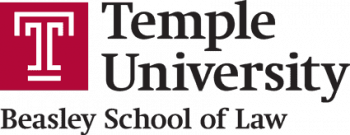
Calling Philadelphia home, Temple University’s James E. Beasley School of Law ranks among the top law schools in the country. With a 36.05% acceptance rate, admission to Beasley School of Law is moderately difficult with LSAT scores of 161, more than 2200 made applications with 796 admission offers. Two hundred seventeen students enrolled for 2023 in the full-time and part-time law programs. More than 79% of students receive some financial assistance in scholarships and grants. A little over 75% of graduates go directly into the private sector, clerkships, and public interest, with a median salary of $125,000 in the private sector. The school prides itself on its sense of community, low faculty-student ratio, and personalized attention. Temple has been recognized by legal journals and ranking publications for its efforts in its diversity and inclusion activities in race and gender.

For over 50 years, Northeastern University School of Law has graduated lawyers working across the country and the globe. NUSL was the first law school in Boston to offer an evening law program. Located in Boston, MA, this school offers both full-time and a Flex JD and is recognized as having an excellent practice training program. 100% of NUSL law students graduate with a year of legal experience and rank highly in public interest careers. The diversity of the NUSL is evident, with 64% of the faculty being women, 29.5% LGBTQ+, and 35% being people of color. During the 2022 admission cycle, the school saw 3877 applications, with 35.56% receiving offers, resulting in a class of 234 1L. Graduates (40%) enter the private sector with a median salary of $172,500, with others going into judicial clerkships and public interest. 85% of graduates pass the Massachusetts bar exam on their first attempt.

The S. J. Quinney School of Law is Utah’s only public law school. This is a difficult school to be admitted to and is one of the smallest programs we’ve found, with fewer than 100 enrolled students for 2023 out of an applicant pool of fewer than 1000 students. Median LSAT scores are around 161, with undergraduate GPAs of 3.77. The school has strong pro bono initiatives, externships, and experiential opportunities, and students enjoy a low 4.3 to 1 student-faculty ratio. Nearly all graduates are employed within ten months of graduation, and almost half go to work in private law firms earning an average of $90,000 salary, and students have a 92.94% first-time bar exam pass rate. Located in Salt Lake City, Utah’s capital, allowing students to take advantage of activities in the nearby mountains, visit attractions such as the famed Mormon Tabernacle, and enjoy the city’s restaurants and shopping areas.

Graduates of Boston College Law enter the law with one of the country’s highest median starting salaries, and more than 94% are employed within ten months of graduation. Affiliated with the Catholic Church, this private school has a strong reputation within the Boston legal community and beyond. More than 6,000 applicants for the JD class of 2025 and a median LSAT score of 164 212 were extended admission offers. The school has 69 full-time faculty, and you’ll enjoy a 7.1 student-teacher ratio. Boston College Law supports over 100 clinics and externships, nine dual degrees, and four global exchange programs. The law college is located in Newton, MA, about 1.5 miles from the larger Boston College campus. On your days off, you’ll be able to enjoy the many historic sites, baseball at Fenway Park, or participate in the famed Boston Marathon.
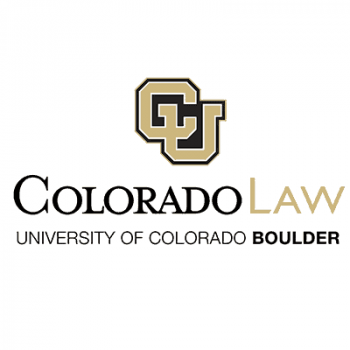
Colorado has only two law schools, and this law school admission is very competitive. With over 3200 applicants, Colorado Law enrolls 165 LD students with an LSAT median score of 164 and undergraduate GPA of 3.72. More than 56% of the class are women, with 33% identifying as people of color. Students have the option to complete their JD in five semesters, which comes with pros and cons, such as tuition savings and heavier course loads. Faculty at this school are experts in environmental law, American Indian law, technology, and natural resources law, to name a few. 87% of graduates report employment within ten months of graduation, with a median salary of $80,000 in the private sector. While the overall cost of living in Boulder is high, the city’s considered one of the best places to live. Its mountain location provides numerous opportunities for outdoor activities, and the city of Boulder offers vibrant shopping, dining, and entertainment.
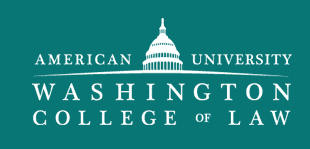
The American University Washington College of Law (est. 1896) is a private university located in the northwest section of Washington, D.C. It holds the distinction of being the first law school in the country founded by women. Today, the college has a robust slate of programs, centers, and initiatives, including an advocacy program, health law and privacy, economic justice, women and law, and more. With a 36.35% acceptance rate, this school is moderately difficult to enter. The college’s median LSAT score is 162, with a gender distribution of 65% women and 36% overall minority representation. WCL has 296 full-time faculty and maintains a 6.6.1 student-faculty ratio. With its proximity to the Capitol, graduates serve as Capitol Hill interns and staff. The college has several notable alumni and celebrities, including senators, presidential advisors, as well as Judge Judy (Sheindlin).
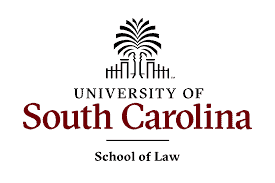
This is another of the nation’s oldest law colleges (est. 1867) and is the only non-profit and public law college in South Carolina. The college has an average class size of 212, with a median LSAT of 158 and a GPA of 3.53. Graduates have a high first-time bar exam pass rate of 94% as well 95% are employed within ten months of graduation. More than half of those graduates work in private practice with an average salary of $70,000. This school is recognized for its pro bono program, clinics, and externships. The law college is located near the state capitol in Columbia, SC, an area with a small-town feel and large-city activities in dining, entertainment, and sports. You’ll be close to mountains, South Carolina’s low country, and the Atlantic coast during your infrequent downtimes.

The Rosenberg College of Law is one of the oldest law schools in the Kentucky Commonwealth (est. 1908), having developed from a program created at Transylvania University in 1799. Located in Lexington, this college has a solid reputation and is known for establishing the first trial practice program. Almost 86% of the 2020 class found long-term employment nine months after leaving school. With a 60.67% acceptance rate, students with LSAT median scores of 157 and a GPA of 3.62 will find it a welcoming school. This medium-sized law college has approximately 388 full-time students and 34 full-time faculty. Students have the chance to participate in mock trial competitions, community service opportunities, and political and social organizations. Over 90% of students are recipients of scholarships and grants. Lexington is known for the Kentucky Horse Park and offers many attractions to help students unwind.
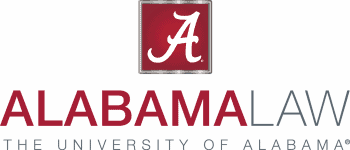
The University of Alabama School of Law in Tuscaloosa is a small but important law school as one of the best in the region. It’s the only public law school in the state. Of the 1738 applications received for the class of 2025, the LSAT median is 166, with a median of 3.95 GPA, and the school enrolled 159 students (approximately 35.72%). Each student enrolled is promised a clinical experience in one of the school’s six clinical programs. Study abroad opportunities exist in Australia, the UK, and Israel. 93.6% of UA School of Law graduates passed the bar exam on the first attempt, and 94% reported employment in private firms and judicial clerkships in the first ten months following graduation. The median salary reported is $115,000.

Iowa has only two law schools in the state, and the College of Law at the University of Iowa in Iowa City is consistently nationally recognized as one of the best law schools. Established in 1865, the college is the oldest continually operating law school west of the Mississippi. The college has a high acceptance rate near 43%, a median LSAT score of 161, and a first-time bar pass rate of 84%. Students enjoy a low student-to-faculty ratio of 7 to 1, a faculty known for its scholarly contributions, and in-state tuition costs in the low $20,000s. Graduates have a high employment rate within nine months, and those working in the private sector can earn a $100,000 median salary. Over 20% of graduates work as judicial clerks.

There’s a good deal to recommend Wayne State University Law School, including its small 1L class size, high first-time bar exam pass rate of 91%, and post-graduate employment rate of 86%. Since 1927, this school has attracted faculty recognized for its scholarship and publications who take a personal interest in their students. WSULS has been nationally recognized for its value, clinical training, and full-time and part-time JD degrees. This school has been at the forefront of civil rights. It supports the Damon J. Keith Center for Civil Rights, dedicated to raising understanding of racial issues in Michigan and beyond. The acceptance rate is a moderate 36.62%, and applicants have a median LSAT score of 159. Graduates in the private sector report a median salary of $115,000.

This school’s website features its motto of “Law in Action,” which describes its curriculum as it relates to the law of societal change. The University of Wisconsin Law School offers 20 clinics, externships, and a curriculum focused on skills taught by nationally recognized faculty. Nearly 1569 student applicants applied for the class of 2023, with 42.45% offered admission and 241 students enrolling. The median LSAT was 164, and a 3.65 GPA. Half of the enrolled students are women, and 27% identify as people of color. The school has an average 100% first-time bar exam pass rate, with 83% working in the legal profession within nine months of graduation and earning a median of $75,000 in private practice firms. Third-year students participate in the “Cane Toss,” a tradition that predicts whether the student will win their first case by tossing a cane over the Camp Randall Stadium goalposts during UW’s homecoming activities.
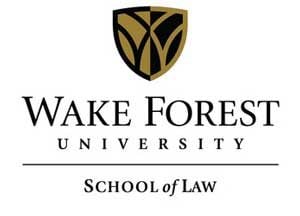
This Winston-Salem, North Carolina, law school is a well-regarded school that features intentionally small classes that graduates some of the most well-prepared lawyers in the country. Founded in 1894, Wake Forest University Law School received approximately 2000 applications in 2020 and, with a highly competitive admission policy, accepted (17.99%) which yielded a 1L class size of 88. The median LSAT score is 165, with an undergraduate GPA of 3.85. Wake Forest Law boasts a 100-member faculty of legal scholars and a North Carolina Business Court in the building for students to observe a court in real-time. Wake Forest supports seven legal clinics serving clients from child advocacy to innocence and justice (originating with the Innocence Project) and veterans’ legal issues. This school’s first-time bar exam passage rate is 94.27%, with over 65% employed and earning a median $103,000 salary within ten months of graduation.
Do I Have to Take the LSAT for Law School?
Since 1948, law schools and colleges have used some form of the Law School Admission Test (LSAT) as an integral part of the admission process. The test measures a student’s skills in areas critical to the first year of law school. Among the aptitudes tested are reading comprehension, writing, and reasoning. Law school admissions officers look at the LSAT as a reliable predictor of your success during the first year of law studies. Make no mistake; this is a challenging exam comprised of multiple-choice questions, divided into four sections, 35 minutes in duration for each.
The LSAT has been the American Bar Association (ABA) gold standard for admission to an ABA-accredited law school. Test scores range between 120 and 180. The Princeton Review suggests the median test score is around 152, and schools set the required LSAT score for their admission requirements.
In the past few years, due in part to the COVID-19 pandemic, colleges and universities have moved to test-optional criteria for admission. In September 2022, The Strategic Review Committee for the ABA recommended that law schools require a “valid and reliable admission test.” In other words, schools can opt to require either the LSAT or the Graduate Record Exam (GRE) for admission, and some JD programs will accept either test score. You’ll need to verify which test the schools you’re interested in accept for admission.
So, in short, whether you take the LSAT is determined by the school; but you may not have to sit for the LSAT for law school admission.
How Long Does Law School Take?
Typically, you’ll be in law school for three years to earn your Juris Doctor (J.D. or JD), but some accelerated programs allow you to complete your degree in two years. If you opt for a part-time JD, you can expect to be in school for up to four years.
The first year is usually particularly rigorous, studying casebooks, Socratic teaching methods (spontaneous requirements to discuss a specific case and argument), and understanding complicated and straightforward issues. While remaining challenging, more law schools are fostering a more collegial atmosphere than previously experienced by law students.
What are the Pre-Requisites for Law School?
Few law colleges and schools have specific undergraduate pre-law requirements but majoring in Pre-Law as an undergraduate will provide you advantages.
A Pre-Law major will help you develop reading comprehension, writing, and thinking skills. Pre-Law classes may include studies in government, crime, and global issues, but most of your classes will be in social science and the humanities. You’ll probably take a history, philosophy, logic, English, political science classes, and even math and science. The broader your studies, the better.
Should I Work or Take an Internship During Law School?
To begin with, the first year of law school (L1) is exceptionally time-consuming, challenging, and crucial to your success. That said, working and attending law school in the evening or part-time is possible but difficult.
Let’s look at some pros and cons of working while attending law school:
- Time Management – through necessity, if you work while attending law school, you’ll become more efficient by using your study time wisely.
- Financial – Law school is expensive, and most law students graduate with substantial loans to repay. Having an income will help reduce the number of loans you may need. You should file the Free Application for Federal Student Aid (FAFSA) to qualify for loans, need-based grants, or work-study programs.
- Work-Life Balance – Working, attending classes, and studying will take a chunk of your free time for family, friends, or relaxation.
If you have no choice but to work while in law school, try to find employment that may allow you to study during down times. Jobs in a library, receptionist, parking attendant, online customer service, etc., will be of help. You may also want to talk with the Financial Aid Office to see if any work-study jobs are available.
Internships
Internships in law or government offices can provide valuable experience and connections. However, most experts don’t recommend interning during the challenging first year of law school. While there are some paid law internships, they’re few and far between. If you find one, it will typically be low-paying or volunteer positions that may not be worth the time it will take from your studies.
Waiting until you’re a 2L or 3L to do an internship makes more sense since you’ll have learned skills that will be helpful for a law firm or judicial environment. By the second year, you’ll have improved your writing and critical thinking skills and will be more useful in legal matters. Law interns can experience court proceedings, trial preparation, legal memos, legal advice, etc., which can be invaluable.
Law schools and colleges frequently have clinical practice opportunities in various legal issues such as immigration, child advocacy, domestic abuse, etc., and participating in those real-world situations with real clients, can help make you more attractive for internships.
Related:
